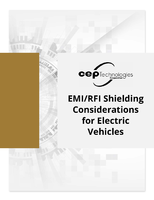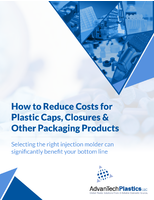Machine treats resin to promote surface preparation.
Press Release Summary:
Used in rotational molding, injection molding, or higher-volume applications such as painted automotive parts, RTS Technology allows common resins to be treated while in powder form to facilitate part decoration. It makes parts made of polyethylene, polypropylene, and thermoplastic olefins ready to accept paint, adhesives, and other decorations. Able to treat 2,000-4,000 lb of resin/hr, high-voltage unit allows powder to be treated to at least 50 dynes.
Original Press Release:
Breakthrough Technology Treats Resin Prior to Molding
Lectro resin treatment advances part decoration By Angie DeRosa PLASTICS NEWS STAFF
ST. LOUIS (June 27, 11:40 a.m. EDT) -- Lee Williams is facing sticky circumstances.
Williams has what he believes to be breakthrough technology for treating plastic resin to facilitate decoration. His firm, Lectro Engineering Co., has dubbed it RTS Technology.
Williams, chief executive officer of the St. Louis-based firm, is excited about having featured the technology at NPE, even as the firm looks for help, such as through a joint venture, to make RTS ready for more widespread use.
That could include tackling different processes, like injection molding, and higher-volume applications, like painted automotive parts.
"We've done rotational molding," Williams said, not disclosing with which company he has been doing business. "They've actually molded the parts; they've actually done adhesion. It's been perfect. So we've already gone that far.
"One step further, the injection molding business ... is obviously the biggest. We have sent powdered resin to several locations and done automotive parts. That's pretty much the extent of what we've done right now."
RTS is a patent-pending system that allows common resins to be treated while in powder form. Mostly it is applicable to polyethylene, polypropylene and thermoplastic olefins. Without treatment, parts made from those resins are difficult to paint, and they resist adhesives and other decorations.
The technology complements Lectro's existing business, a surface treatment known as Lectro-Treat, which is commonly a downstream operation applied after a part is molded.
RTS was the result of modifying the company's Lectro-Treat LT2000, a machine that it introduced at NPE 2000 to replace flame treatment systems. LT2000 works by running parts through a tunnel, where they are treated with an oxidized cold plasma at atmospheric pressure.
Under the new RTS design, processors or material suppliers can treat 2,000-4,000 pounds of resin per hour.
Saving money is the big draw, according to Lectro. First of all, processors can make parts that accept decoration using as little as 30 percent treated resin.
Second, RTS saves energy because the unit is high voltage, not high current, and therefore uses less electricity than what an average family's refrigerator would consume, according to Williams and Vice President of sales Greg Wood.
Finally, labor savings follows, because processors don't have to handle each part twice, or send finished parts out to be treated, Wood said.
"You can mold it, and it's ready to be painted; it's ready to be adhered to, and you don't have a secondary operation," said Williams, who was a naval nuclear engineer before he took over the business from his father in 1979.
Williams, Wood and Chief Operating Officer Lee Hyde showcased the machine during a pre-NPE visit to Lectro's St. Louis headquarters. They ran a demonstration, doing dyne tests with the powder and the ever-important "wet test" on already-molded bottles.
For the uninitiated, a wet test is how molders tell if a molded part has been surface-treated. Run a bottle under water, and if the water beads up, it has not been surface-treated. If the water "wets out," the bottle has been treated.
Talking in terms of dyne levels, RTS allows powder to be treated to at least 50 dynes. That number is 20 dynes higher than most commodity resins prior to treating, officials said.
But within the powder lies the restriction. The only plastics process that routinely uses powder is rotational molding. What about those processes for which pellets are needed?
That is the drawback, Williams admits. The company has to solve the surface-volume ratio issue that arises with treating pellets vs. powder. They can treat the outside of the pellet, but when those pellets are melted during molding, the interior of the pellet will not be treated.
"Can injection molding use powder? Yes, even without altering their equipment," Williams said. "So that is a possibility. But in order to get this used acceptably worldwide across the plastics industry, we would have to take the powder and repelletize it. Is that going to work? I don't know. Haven't tried it. That's the next step."
The officials know the attraction of this, for instance, to the automotive market.
"The big attraction of this to the automotive market is not having to use the primer," Wood said. "The most-used method is to prime the part with a primer coating before they do the final coat, and the primer coat costs four times what the final coat costs."
The cost of treating resin using RTS essentially is a penny per pound, perhaps less, the Lectro officials said.
As the company hits NPE with its latest technology, it also is facing other changes. With no successors in his family, Williams will in the next 30-60 days bring on Wood and Hyde as partners.
"Greg and Lee Hyde are going to be buying substantial shares in the company in the next 30 days to 60 days," Williams said. Williams and his wife, Kimberly, currently own the company. Williams' father, Ralph Williams, started Lectro in 1960.
The firm also is managing its growth carefully, looking to add roughly six employees to its current 70 in St. Louis. Williams wants to invent new technologies while staying debt-free.
Most immediately, the firm is focused on finding growth opportunities using RTS.
"If this is what we think it is, this will quadruple our business," Williams said.
For more information on this breakthrough technology call Lectro Engineering @ 314-567-3100.
You can also contact them via email lectro@lectrotreat.com.
Company Name: Lectro Engineering
Address 1: 1643 Lotsie
Address 2:
City: St. Louis
State: MO
Zip: 63132
Country:
Phone: 314-567-3100
URL: www.lectrotreat.com
Contact Name: Lee Hyde
Organization:
Title: VP
E-mail: lee.hyde@lectortreat.com




